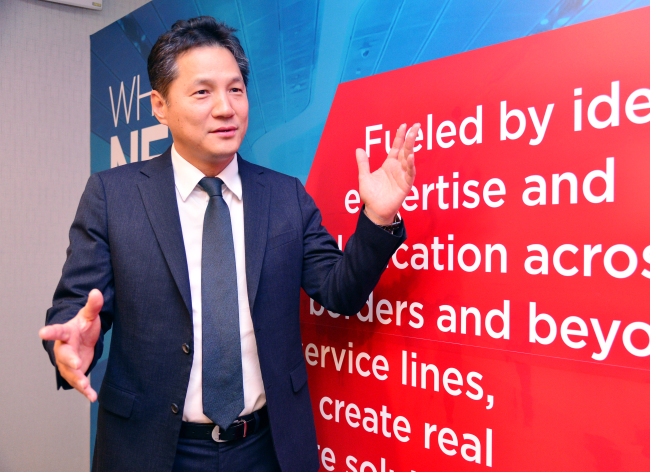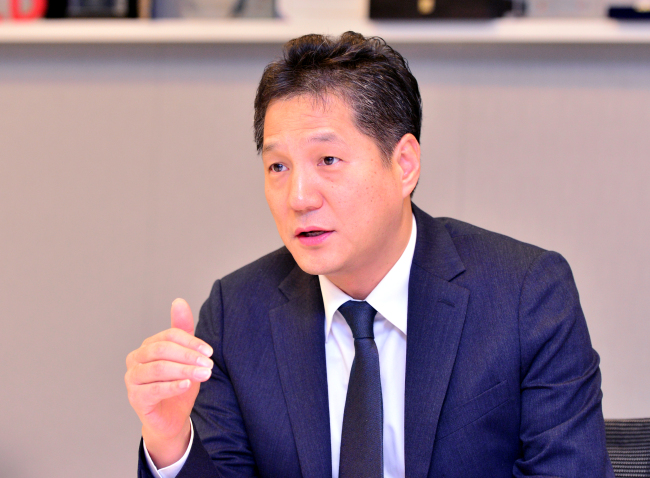Office Consulting
[INTERVIEW] Forex hedging, diversification behind Korean investments in EU realty market
Although investments in the European real estate market have declined from the Asia-Pacific region, Korea has bucked the trend.
In 2018, the volume of APAC investment into European office buildings shrank 12 percent on-year to 17.4 trillion won (US$15.5 billion), according to the latest estimates by a Korean arm of US commercial real estate service company Cushman & Wakefield.
On the other hand, cross-border real estate investments by Korean entities jumped 39.4 percent on-year to 7.29 billion euros (US$8.28 billion). The figure rose nearly sixfold in four years.
While Korea is already home to conventional offshore real estate investment powerhouses such as Samsung SRA Asset Management, Igis Asset Management and Mastern Investment Management, local investment banks have started marking their presence as underwriters to secure European assets, mostly as limited partners of offshore funds. Investment vehicles like institutional investors in Korea later join the deals through sell-down transactions.
 |
Cushman & Wakefield Korea Managing Director Richard Hwang |
The trend comes amid portfolio diversification driven by Korean investors’ urge to offset losses from securities investments, riding on a stronger won against the euro, Cushman & Wakefield Korea Managing Director Richard Hwang said in a recent interview with The Investor.
“Korean presence in the European real estate market has been on a sharp rise. Domestic investors have been making losses in their equity and bond investments, so they are turning their attention to realty assets for alternative investments. ... We are seeing a rise in European real estate assets in the portfolio now.”
When asked about the European realty assets’ upper edge against US or Korean properties, the 50-year-old said that securitized European assets bring higher dividends for investors, which leads to higher capital gains.
This comes in sharp contrast to Korean assets faced with projected policy rate hikes this year, as the rise in the interest rates would narrow down their profit margins.
Moreover, the local currency appreciation against European currencies was favorable to Korean investors. The euro-to-won currency exchange rate fell 4.6 percent -- by 61.36 won -- in a year as of Feb. 22, meaning the won strengthened by the corresponding amount, according to Seoul Money Brokerage Services. The won also rose 3 percent – by 46.07 won -- against the UK pound over the cited period.
“Alternative investments normally have higher forex exposure,” Hwang said.
For its clients -- institutional investors and investment firms -- Cushman & Wakefield has facilitated cross-border investments, taking advantage of its prowess in brokering and managing realty deals and bids through collaboration with its offices in about 70 countries.
“What’s crucial in cross-border deals is not only local factors but also the macroeconomic setting,” he said. “(Cushman & Wakefield) also takes forex risk hedging into account. Seemingly, the US realty market is said to promise higher yields than in Europe, but that estimates exclude the forex factor.”
 |
Cushman & Wakefield Korea Managing Director Richard Hwang |
Within Europe last year, assets in London were the favorite for Korean investors, far exceeding other cities such as Paris and Frankfurt, which drew second- and third-largest Korean properties investments, according to Cushman & Wakefield.
Korean investments this year are likely to sprawl from such “European gateways” to other capital cities in Northern Europe like Stockholm and Helsinki, in Eastern Europe like Prague, in Western Europe such as Amsterdam and Dublin, as well as "second-tier" cities such as Heidelberg, Munich and Edinburgh.
“The same is true in Korea. Foreign investors new to the domestic realty market start their investments in downtown Seoul, not in Busan or other cities. Here, investors start with spots in Seoul like Gwanghwamun and Gangnam, to metropolitan areas surrounding the capital city,” he said.
Moreover, Hwang predicted the focus on office buildings in European cities will divert to other sectors such as logistics, health care and multi-family residences. Nine out of 10 Korean investments in Europe went to office buildings.
“This uptrend from Korea could be just the start, as long as we can continue forex hedging against currencies in Europe,” he said, adding that the won is likely to remain strong this year.
Formerly an analyst at LG Department Store, Hwang began to work at the Korean unit of Chicago-headquartered Cushman & Wakefield in 2000. He has headed the subsidiary since 2008 and has been in charge of duties here, ranging from leasing, sales, acquisition, investment banking, project development, facilities management and other types of consulting for commercial real estate assets.
By Son Ji-hyoung (consnow@heraldcorp.com)








